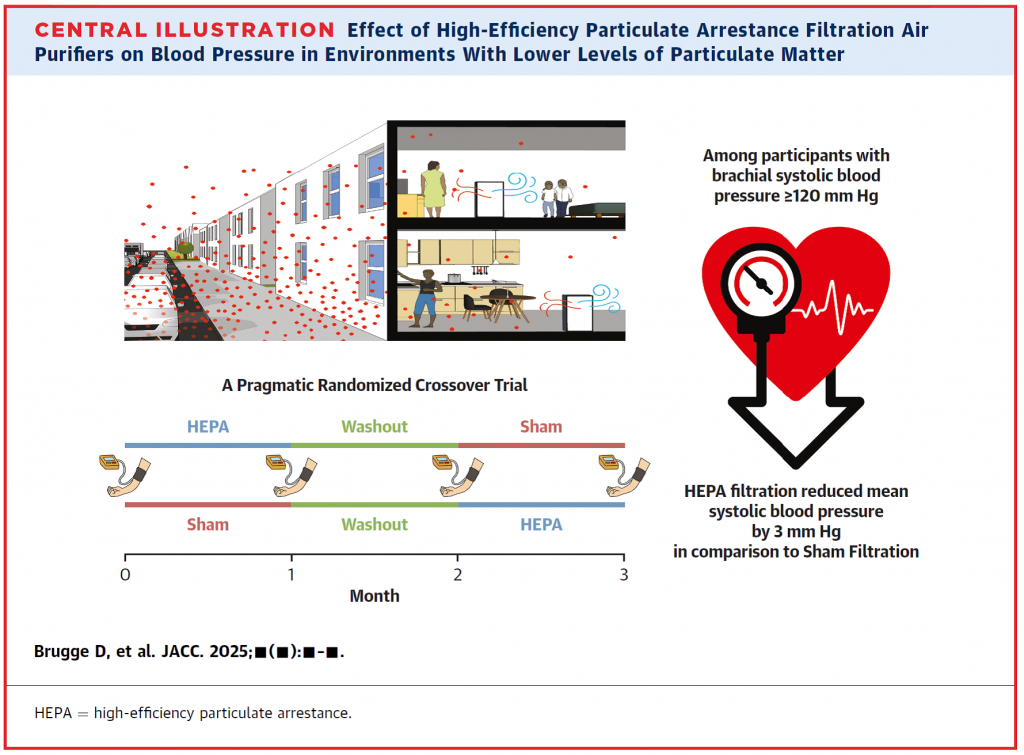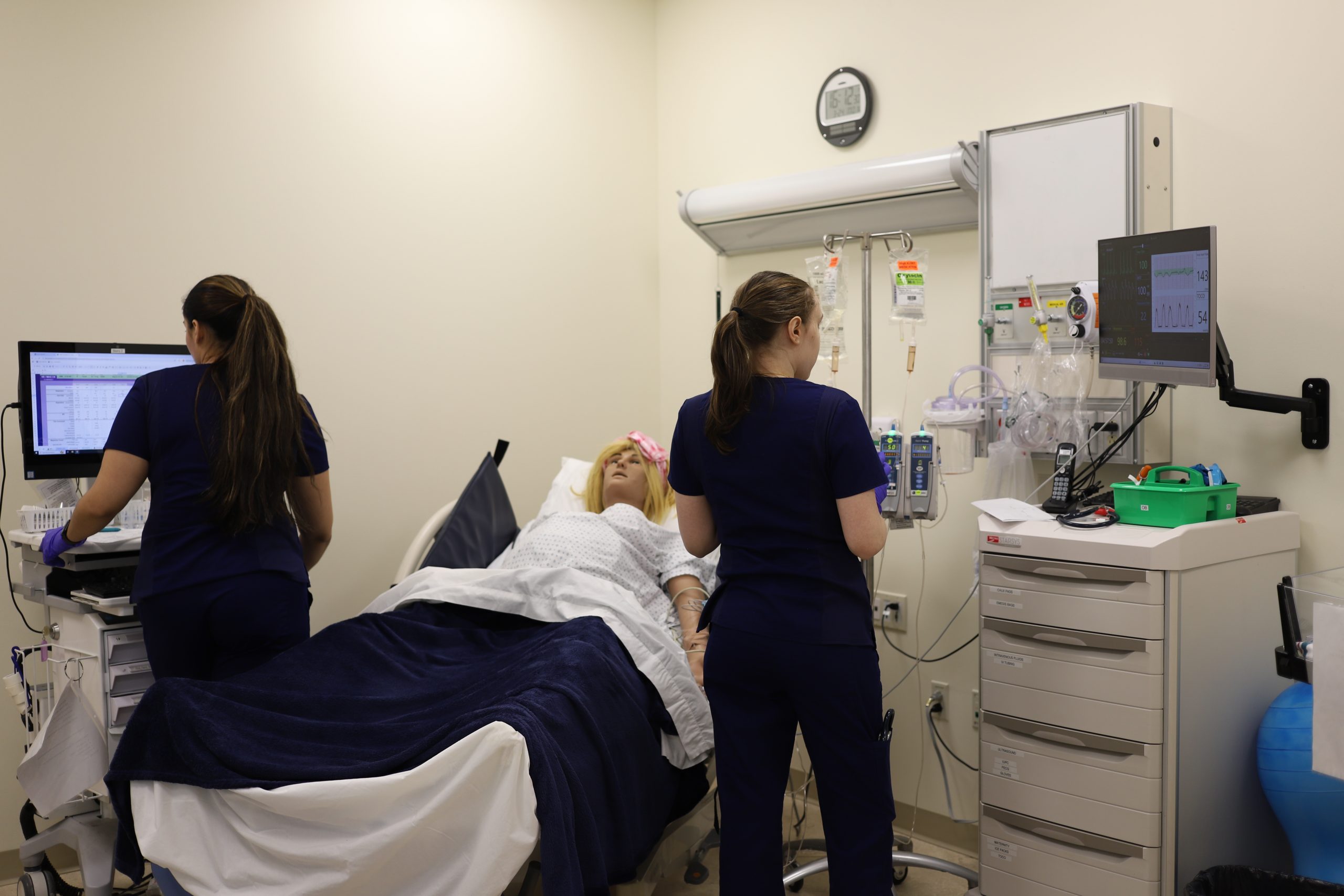Air Purifiers May Reduce Heart Risks for People Exposed to Traffic Pollution
Using portable high-efficiency particulate air purifiers at home can significantly lower systolic blood pressure in adults with elevated baseline readings — even in areas with relatively low overall air pollution levels, according to a study published August 6 in JACC, the flagship journal of the American College of Cardiology.
Particulate matter is a major contributor to air pollution and is strongly associated with cardiovascular disease. People living near high-traffic roadways are frequently exposed to elevated levels of particle matter from vehicle emissions as well as tire and brake wear. These fine particles can infiltrate homes and affect residents, increasing the risk of hypertension and elevated blood pressure – both major cardiovascular disease risk factors.

“High blood pressure remains one of the most important modifiable risk factors for cardiovascular disease,” said lead author of the study Douglas Brugge, professor and chair of the Department of Public Health Sciences at the UConn School of Medicine and UConn Health. “This research adds to growing evidence that simple interventions, like in-home air filtration, may help improve heart health for people at risk.”
In this randomized crossover trial of 154 adults living near highways, participants were randomly assigned to receive one month of either high-efficiency particulate air purifiers or sham filtration (the same units with the filter removed) in their homes, followed by a one-month washout period with no filtration and then the alternate treatment. Blood pressure measurements and participant questionnaires were collected at the start and end of each period.
Researchers found that participants with elevated systolic blood pressure (more than 120 millimeters of mercury) experienced an average 2.8 millimeters of mercury reduction in after one month of filtration. In comparison, systolic blood pressure increased slightly (0.2) during a sham filtration period, resulting in a significant 3.0 difference in favor of filtration. There was no significant impact on diastolic blood pressure or among participants with normal systolic blood pressure.

“Overwhelming evidence shows the harmful health effects of PM2.5 exposure, even at levels below current U.S. standards,” said Dr. Jonathan Newman, associate professor in the Department of Medicine at the Leon H. Charney Division of Cardiology at the New York University Grossman School of Medicine, and lead author of the accompanying editorial comment. “As healthcare professionals, we must educate the public and support policies that protect clean air and improve the health of all Americans.”
Dr. Harlan M. Krumholz, editor-in-chief of JACC, noted that the study raises the possibility that even modest improvements in indoor air quality could have a meaningful impact on blood pressure for people at risk.
“While more research is needed, these results suggest that what we breathe at home may matter for our cardiovascular health,” Krumholz said.
Study limitations include limited generalizability due to a predominantly white, higher-income participant pool, exclusion of people on blood pressure medications, potential variation in purifier use and a lack of data during hotter summer months or at times of higher indoor pollution.
Latest UConn Today
- Grown ConNECTed: Cultivating Community and Food Access Across Eastern Connecticut“Find a farm you love and support them. There are so many to choose from, and they’re all part of our community”
- UConn School of Nursing Leads the Way in Simulation Technology and Teaching PracticesEnhancing clinical competency and building confidence in nursing students with the use of emerging simulation technology.
- ‘Turning Back Time’: UConn Researchers Developing Treatment to Reverse Brain Damage from StrokeUConn neuroscientist and chemist receive NIH R01 grant to support their collaboration
- UConn Receives State GreenerGov Awards for On-Campus Sustainability EffortsThe projects being honored further the goal of achieving climate neutrality by 2030
- HBJ “40 Under Forty” Honors Four From School of BusinessThe award recognizes outstanding young professionals in Greater Hartford who have demonstrated leadership, entrepreneurial spirit, and community involvement. The award ceremony will be Sept. 11 at the Aqua Turf Club in Plantsville.
- UConn’s, State’s Sustainability Efforts Bolstered as Two New Electric Buses Join Storrs Fleet'UConn has operated buses of various kinds at Storrs for about 100 years, but this will be the first time they’re run without fossil fuels'













